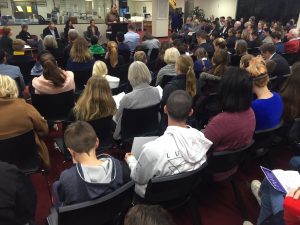 Last Wednesday I gave my judge’s report at the Mosman Literary Awards 2018, held at Mosman’s Barry O’Keefe Library. This annual prose and poetry competition attracts budding poets, playwrights and authors from schools across the state, all of whom compete for a share in the $2,000 prize pool.
Last Wednesday I gave my judge’s report at the Mosman Literary Awards 2018, held at Mosman’s Barry O’Keefe Library. This annual prose and poetry competition attracts budding poets, playwrights and authors from schools across the state, all of whom compete for a share in the $2,000 prize pool.
I’m the judge for the Senior Prose section (for high school years 10, 11 and 12), and wow, I read some amazing short stories this year! I was very impressed and entertained! These writers really made it hard for me to pick a shortlist, let alone winners!
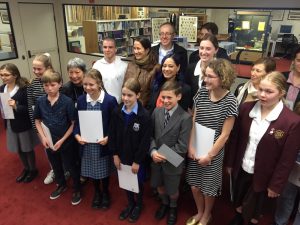 Story topics ranged from the environment to war and soldiers, monsters, murder, slavery and marriage – even Donald Trump! There were some brave and insightful attempts at alternate POVs (points of view), and some beautiful descriptions of character, nature, and the weather. These young writers are really studying people and their interactions with the world, and their stories benefit from it. Some of the stories would compete well in an adult writing competition!
Story topics ranged from the environment to war and soldiers, monsters, murder, slavery and marriage – even Donald Trump! There were some brave and insightful attempts at alternate POVs (points of view), and some beautiful descriptions of character, nature, and the weather. These young writers are really studying people and their interactions with the world, and their stories benefit from it. Some of the stories would compete well in an adult writing competition!
I did, however, have some tips for next year, and/or for any other young writer keen to progress. Here they are:
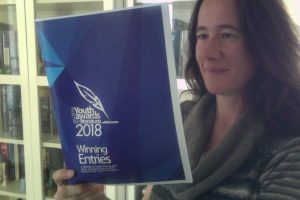 Add a title – I was surprised by the number of entrants who didn’t title their stories. Titles provide writers with an unmissable opportunity to be creative and comment on their story as a whole.
Add a title – I was surprised by the number of entrants who didn’t title their stories. Titles provide writers with an unmissable opportunity to be creative and comment on their story as a whole.- Check spelling & grammar – especially changes in tense. Read your work aloud to find the mistakes, or get someone/your computer to read it aloud to you.
- Show don’t tell – I know teachers teach this in school, but young writers still forget: don’t tell me the sun is shining, show me a sunbeam glinting on a sword.
- Spend time on your opening paragraph – use it to set the scene, prove your worth as a writer, and help readers connect with your main character. Then get on with your story in medias res (meaning in the middle of things / action).
- Avoid overwriting – not every sentence needs to include an adjective, adverb or literary technique; and there’s no need to reinvent how characters experience smell or sound.
- Avoid being too abstract – it’s brave to attempt to communicate something poignant or clever, but by not using ‘story’ as the vehicle to do so, you risk it becoming more of an article on culture or behaviour.
- Be omniscient with caution – if you want to write through an omniscient narrator (ie a narrator who knows everything there is to know about that story), have a good reason for doing so. Among other things, stories are about connection. Omniscience chances severing that connection, preventing readers from getting to know your characters, understanding and sympathising with them. So it’s a risk.
- Keep going – getting shortlisted is an incredible achievement. Keep writing, keep submitting – if you want it, you’ll get there!
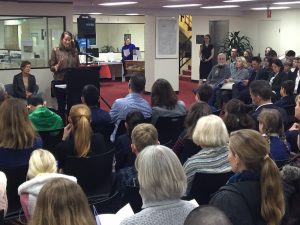 Want more tips? I offer one-on-one mentoring and oodles of creative writing classes over here, for every age and level. I also teach writers’ groups, schools, festivals, conferences, hotels and organisations with all these talks over here and more. I love creative writing! If I had my way, creative reading and/or writing would form a part of everyone’s daily routines!
Want more tips? I offer one-on-one mentoring and oodles of creative writing classes over here, for every age and level. I also teach writers’ groups, schools, festivals, conferences, hotels and organisations with all these talks over here and more. I love creative writing! If I had my way, creative reading and/or writing would form a part of everyone’s daily routines!
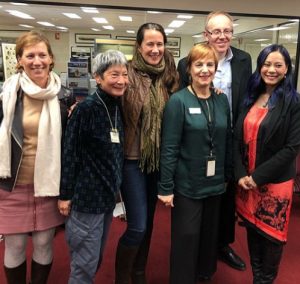
Judges, sponsors & supporters
Congratulations to the shortlisted entries and winners, and to those who support them. It was wonderful to watch you receive recognition and validation.
Thank you to the Mosman Library Service, especially Linda Horswell, and everyone who makes these awards possible! You rock!





